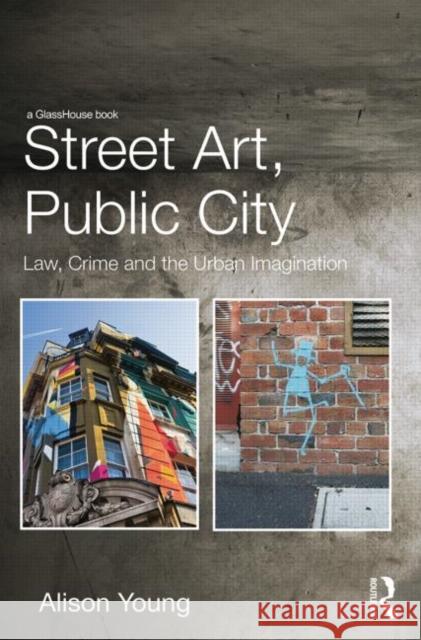Street Art, Public City: Law, Crime and the Urban Imagination » książka
Street Art, Public City: Law, Crime and the Urban Imagination
ISBN-13: 9780415729253 / Angielski / Miękka / 2014 / 200 str.
Street Art, Public City: Law, Crime and the Urban Imagination
ISBN-13: 9780415729253 / Angielski / Miękka / 2014 / 200 str.
(netto: 273,48 VAT: 5%)
Najniższa cena z 30 dni: 270,87
ok. 16-18 dni roboczych.
Darmowa dostawa!
What is street art? Who is the street artist? Why is street art a crime? Since the late 1990s, a distinctive cultural practice has emerged in many cities: street art, involving the placement of uncommissioned artworks in public places. Sometimes regarded as a variant of graffiti, sometimes called a new art movement, its practitioners engage in illicit activities while at the same time the resulting artworks can command high prices at auction and have become collectable aesthetic commodities. Such paradoxical responses show that street art challenges conventional understandings of culture, law, crime and art. Street Art, Public City: Law, Crime and the Urban Imagination engages with those paradoxes in order to understand how street art reveals new modes of citizenship in the contemporary city. It examines the histories of street art and the motivations of street artists, and the experiences both of making street art and looking at street art in public space. It considers the ways in which street art has become an integral part of the identity of cities such as London, New York, Berlin, and Melbourne, at the same time as street art has become increasingly criminalised.It investigates the implications of street art for conceptions of property and authority, and suggests that street art and the urban imagination can point us towards a different kind of city: the public city. Street Art, Public City will be of interest to readers concerned with art, culture, law, cities and urban space, and also to readers in the fields of legal studies, cultural criminology, urban geography, cultural studies and art more generally.











